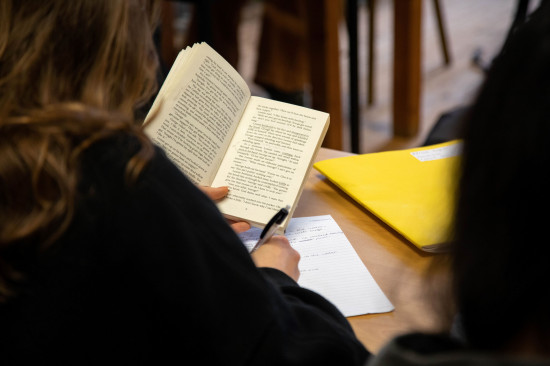Why Waldorf
Creativity, Collaboration, Communication.
Since 2014 the UK educational system has revived a traditionalist approach whereby education is focused on children learning and remembering knowledge.
Waldorf education offers a more rounded experience. Knowledge, skills and competencies are developed in tandem to support growth in the capacities needed for self and life long learning. Formal learning is introduced at the developmentally-appropriate age of 6; slightly later than the national curriculum and similar to successful education systems around the world.
Throughout the whole Steiner Waldorf school journey there is a balance between cognitive, artistic and experiential learning. Education is seen not just as a race to exams but as a time to be creative, curious, and find one's own direction - as well as obtain qualifications.
This goal threads through the whole school experience: curriculum, relationships, environment and community. By utilising artistic and physical activities throughout the learning process - art, music, craft, games and movement - education is enjoyed and children grow in a nurtured and more balanced way.
A need for creative curriculum
In recent years national and International education reports have called for education to be more creative and curriculum to be broader. The OECD (2019), Headmasters and Mistresses Conference (2021) , The Durham Commission (2019) and The Times Educations Commission (2022) concur that making knowledge acquisition and qualifications the main driver in education, has been at the expense of young people acquiring key skills and qualities such as self-esteem, self-determination and wellbeing.

